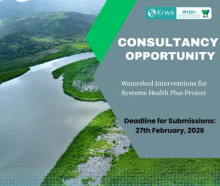
Between Nov. 10 and 21, more than 56,000 delegates, including representatives from nearly 200 nations, gathered in Belém, Brazil, for the 30th meeting of the Conference of the Parties (COP) to the U.N. Framework Convention on Climate Change (UNFCCC). This year’s summit, called COP30, was the second-best-attended climate COP in history, and it took place at a critical moment. Global temperatures have climbed to modern record highs, and extreme weather is battering ecosystems and communities around the world. This is happening despite countries a decade earlier adopting the Paris Agreement, a legally binding treaty aimed at limiting warming to 1.5° Celsius (2.7° Fahrenheit) above pre-industrial levels.
Delegates were under pressure to strike agreements to cut greenhouse gas emissions, to protect people already facing climate impacts, and to finance the energy and economic transitions needed to avoid further catastrophic warming. The negotiations eventually culminated in countries pledging funding for climate adaptation, and agreeing to take steps to ensure that this transition is just and equitable. A coalition of nations also agreed to follow a roadmap to transition away from fossil fuels, albeit outside of the U.N. structure.









